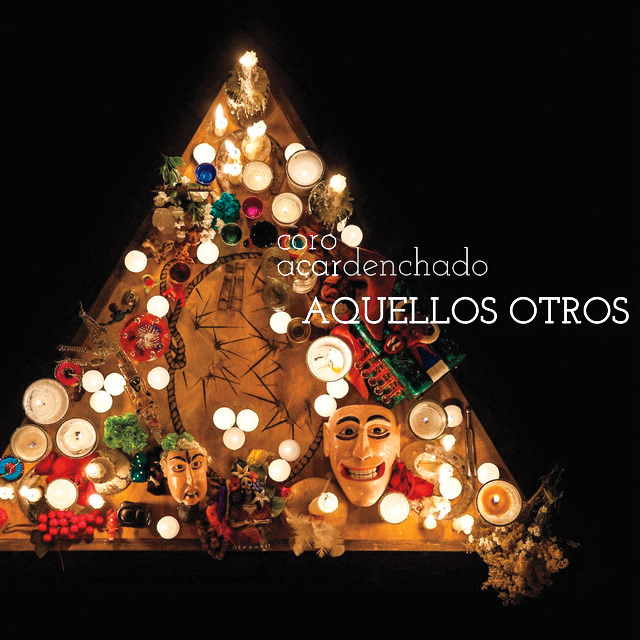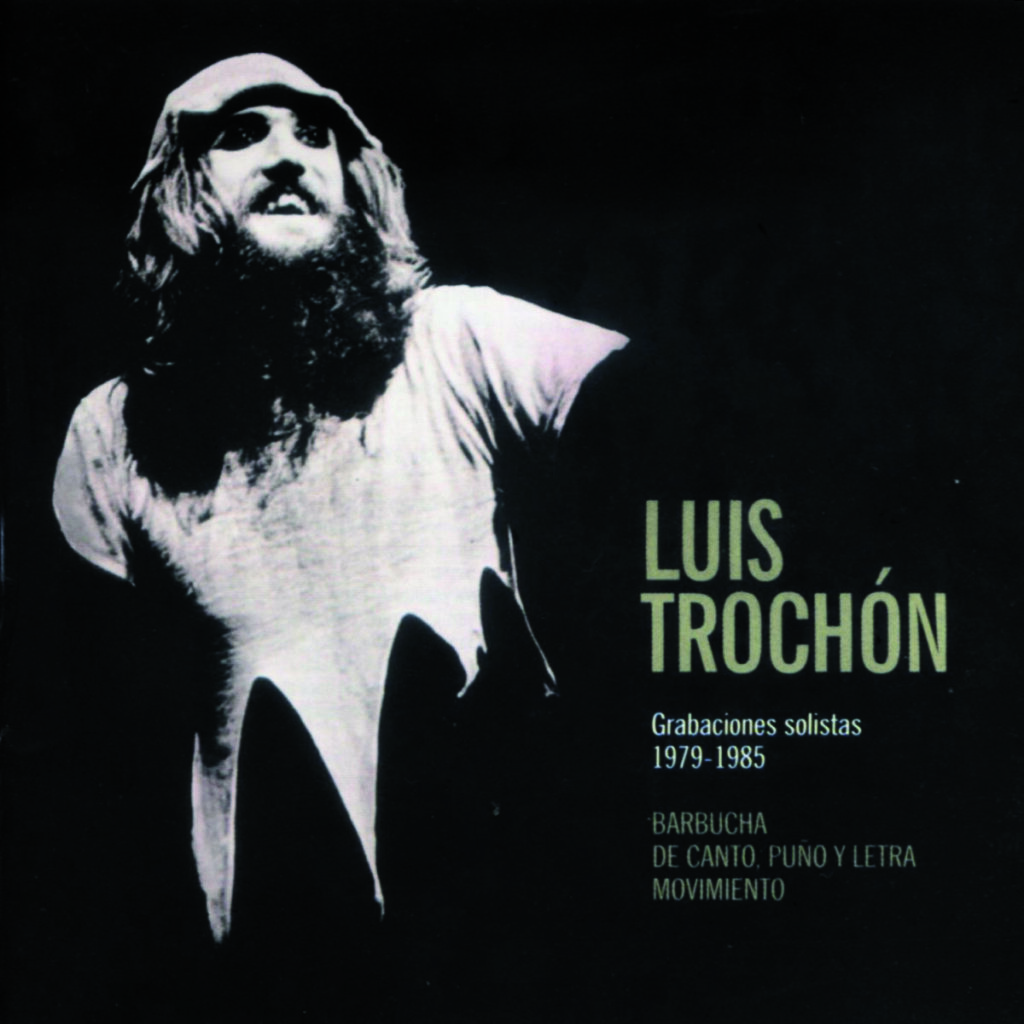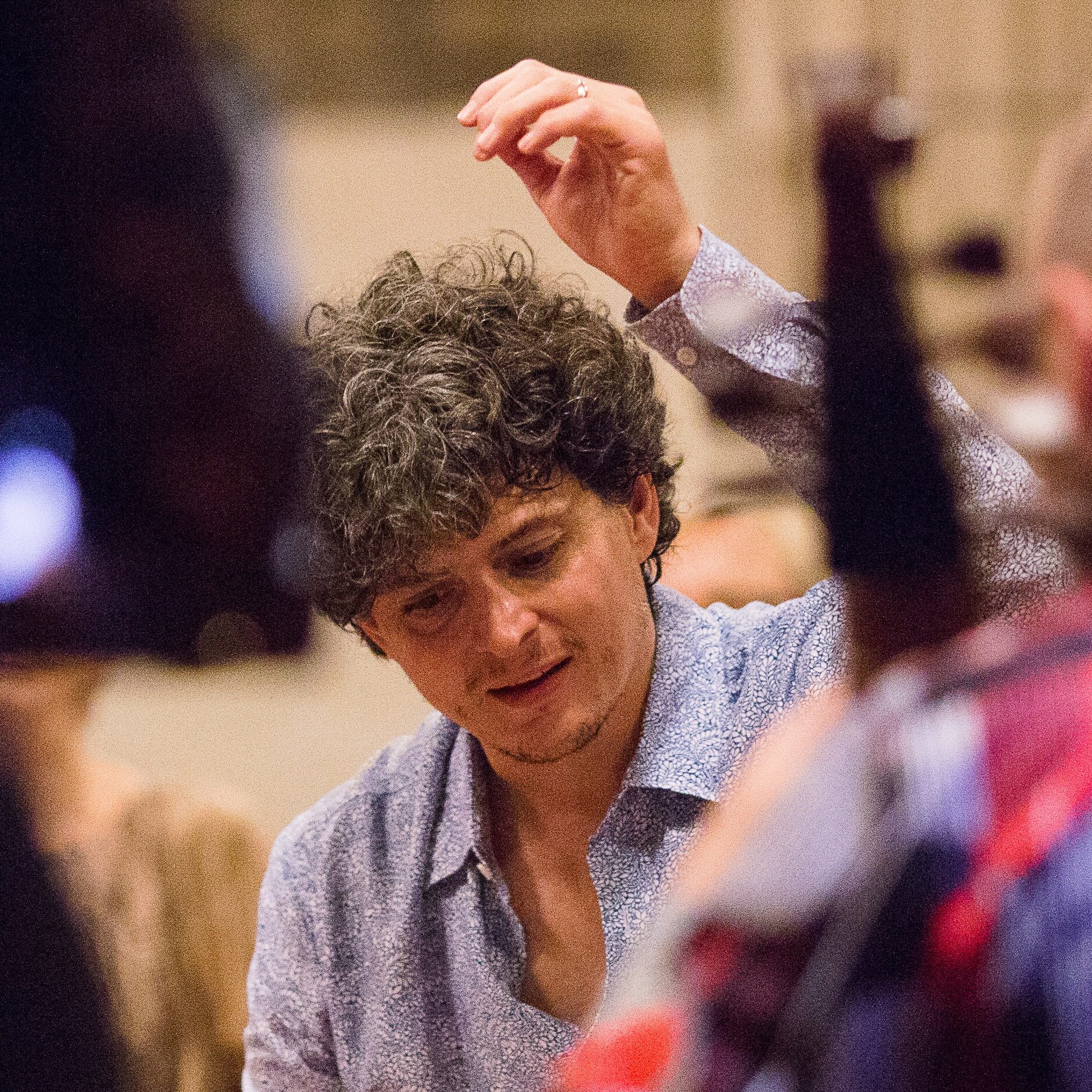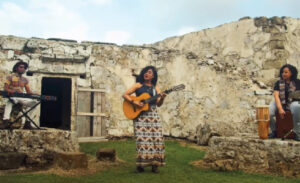This article is adapted from AQ’s special report on Latin America’s ports

O dia em que faremos contato
by Lenine
I am sure I was not alone when, in 1999, I first listened to the album O dia em que faremos contato, by manguebeat superstar Lenine—on CD, there being no streaming back then—and was surprised to hear “Aboio avoado.” The song features a solitary, melancholy voice, which I pictured soaring over the sertão, musing on past adventures and a looming surrender. Surely this would be the start of another killer song. But the song is over as soon as it starts, leaving the voice, and the listener, hanging over the dry land, wondering what will happen once they surrender, and what was the damned, “eyelash-burning” madness they followed. We follow the human voice and its resonances through this playlist.

Aquellos otros
by Coro acardenchado
The Comarca Lagunera, in the Chihuahuan desert of northern Mexico, is home to a remarkable musical tradition, the canto cardenche, an a cappella vocal style which emerged among the hardworking and destitute farmhands of Durango and Coahuila in the 19th century. Sung without instruments in three-part harmony, the songs speak of love and heartbreak and made the workers’ harsh lives more bearable with fireside performances. The last practitioners of this oral tradition, passed down through generations, are getting older, but its extraordinary musical value seems to be newly appreciated by scholars and audiences. Researcher, composer and singer Juan Pablo Villa founded Coro acardenchado in 2016, and he now directs it with Leika Mochán and María Emilia Martínez. Based in Mexico City and dedicated to the genre, the group includes approximately 20 professional and amateur singers. Their album Aquellos otros, released in 2017, includes several classics of the repertoire, in new, mixed choir arrangements that preserve the fascinating rhythmic fluidity and impressive emotional impact of the traditional canto. The synecdochally wistful “Ojitos negros” wonders where those precious dark eyes could be, and laments that everyone else seems to be able to see them around, while the poet is left to wonder about their whereabouts and just remember their beauty. It is heartbreaking and evocative—once again we can imagine the voices hanging over the desert night.

Grabaciones solistas
by Luis Trochón
Adding now a bit of accompaniment to the voice, we turn to the late Uruguayan singer, composer and stage director Luis Trochón, who was part of an illustrious generation of artists that, in the 1970s and 80s, created a uniquely Uruguayan, idiosyncratic repertoire that at times seems to explore the limits of the idea of a song. Many of their songs share a sense of humor and use unusual instrumental arrangements and harmonies, while the lyrics are sometimes at the service of political liberation (many of these artists started their creative lives during the country’s dictatorship), yet often focus on observations of everyday situations. Trochón’s song “Ausencia,” released in 1979, seems to speak about and from the perspective of an absent child, looking at the world and making sense of it through sounds and silences. The very sparse guitar accompaniment and some long silences during the song add to its mystery.

Laura Itandehui
by Laura Itandehui
A song from Mexican singer Laura Itandehui’s latest release continues the slow addition of instrumental support to our vocal journey. Her song “Yo no necesito de mucho” is a supple, Caribbean-inspired hymn to domestic bliss and the simple life and its pleasures, including drink, food, self-care and love. Musically, as she says, it just takes a pair of sticks to keep the rhythm—and her beautiful voice.
Listen to this AQ Playlist on Spotify.







